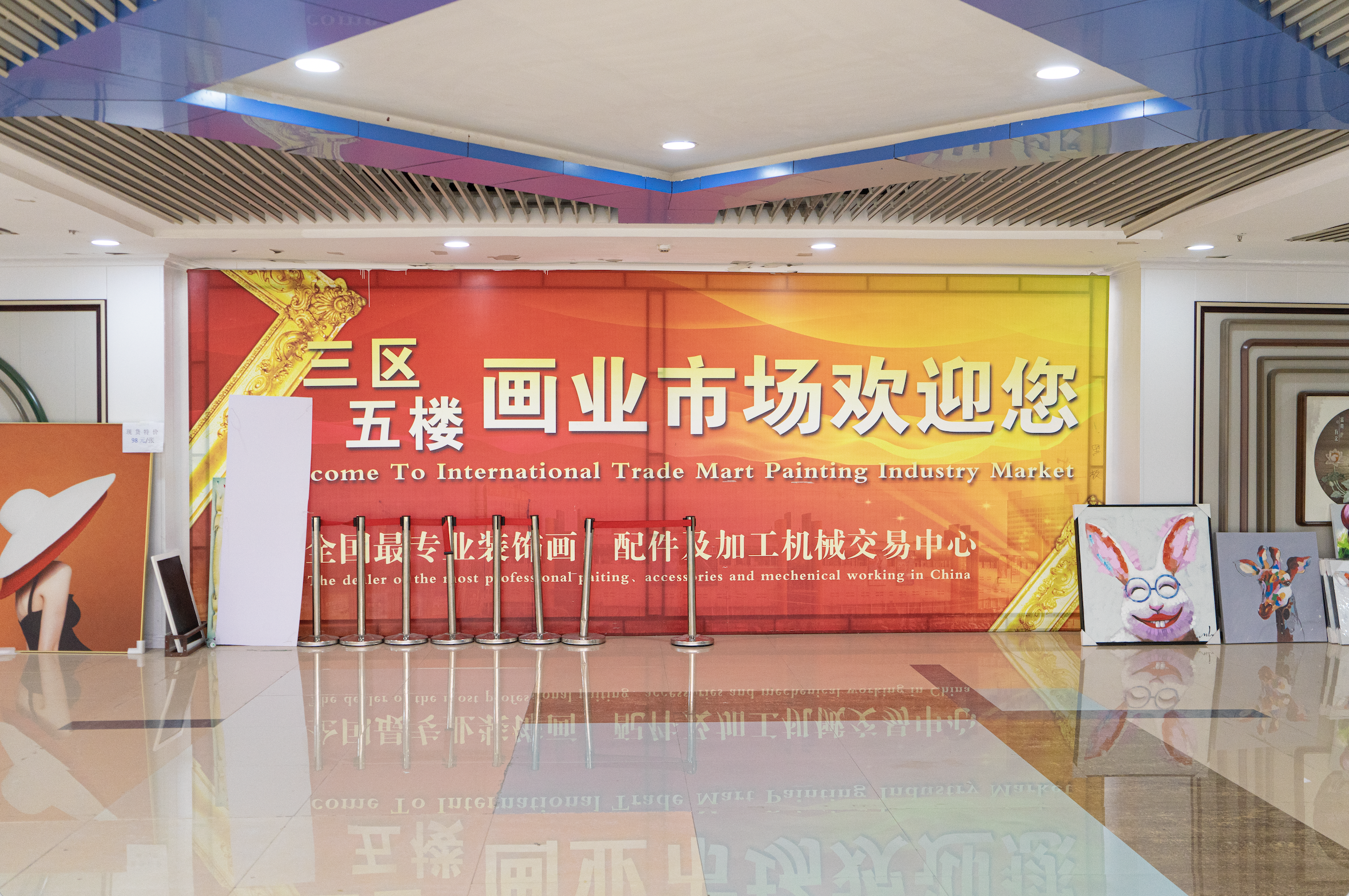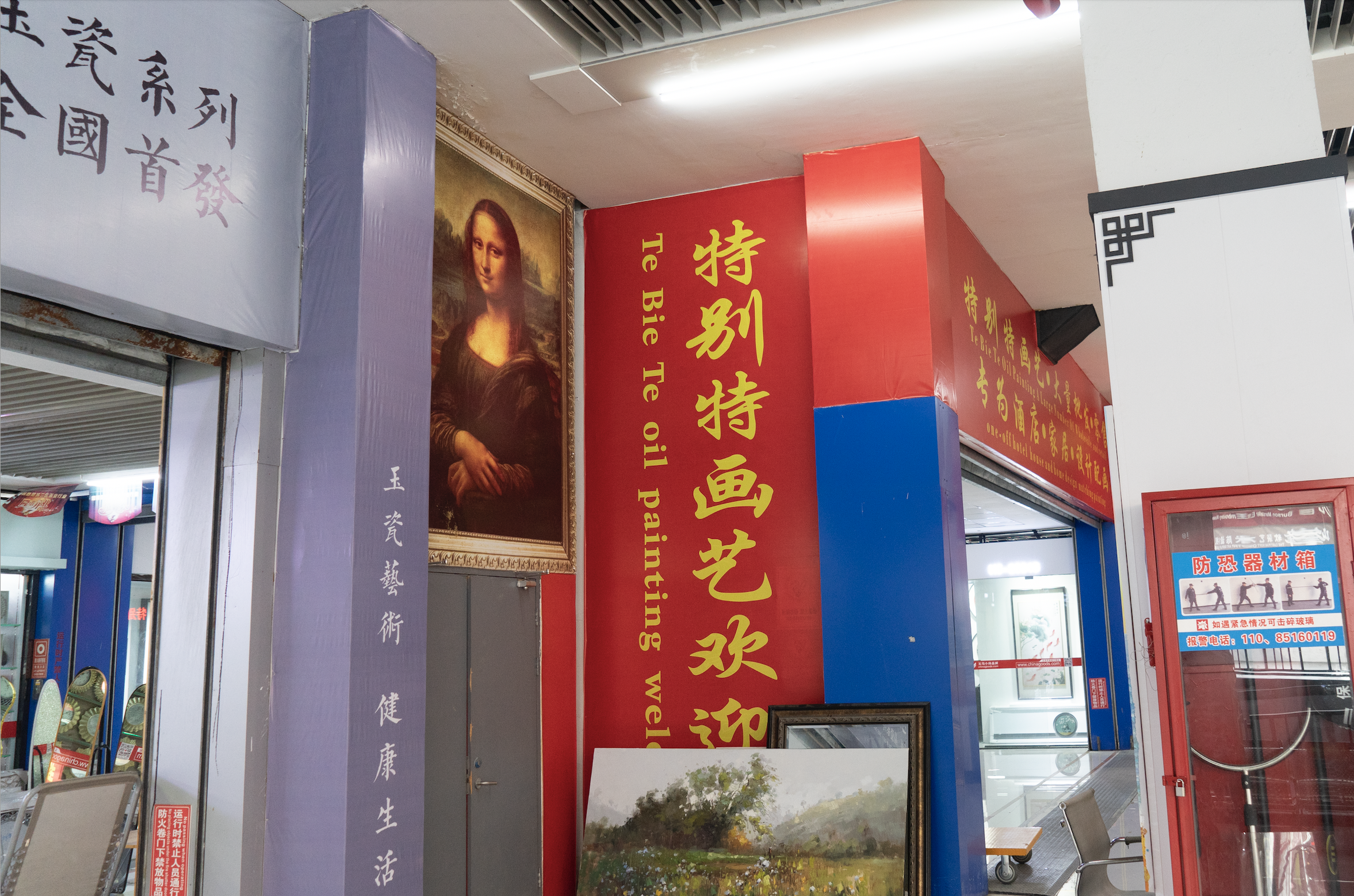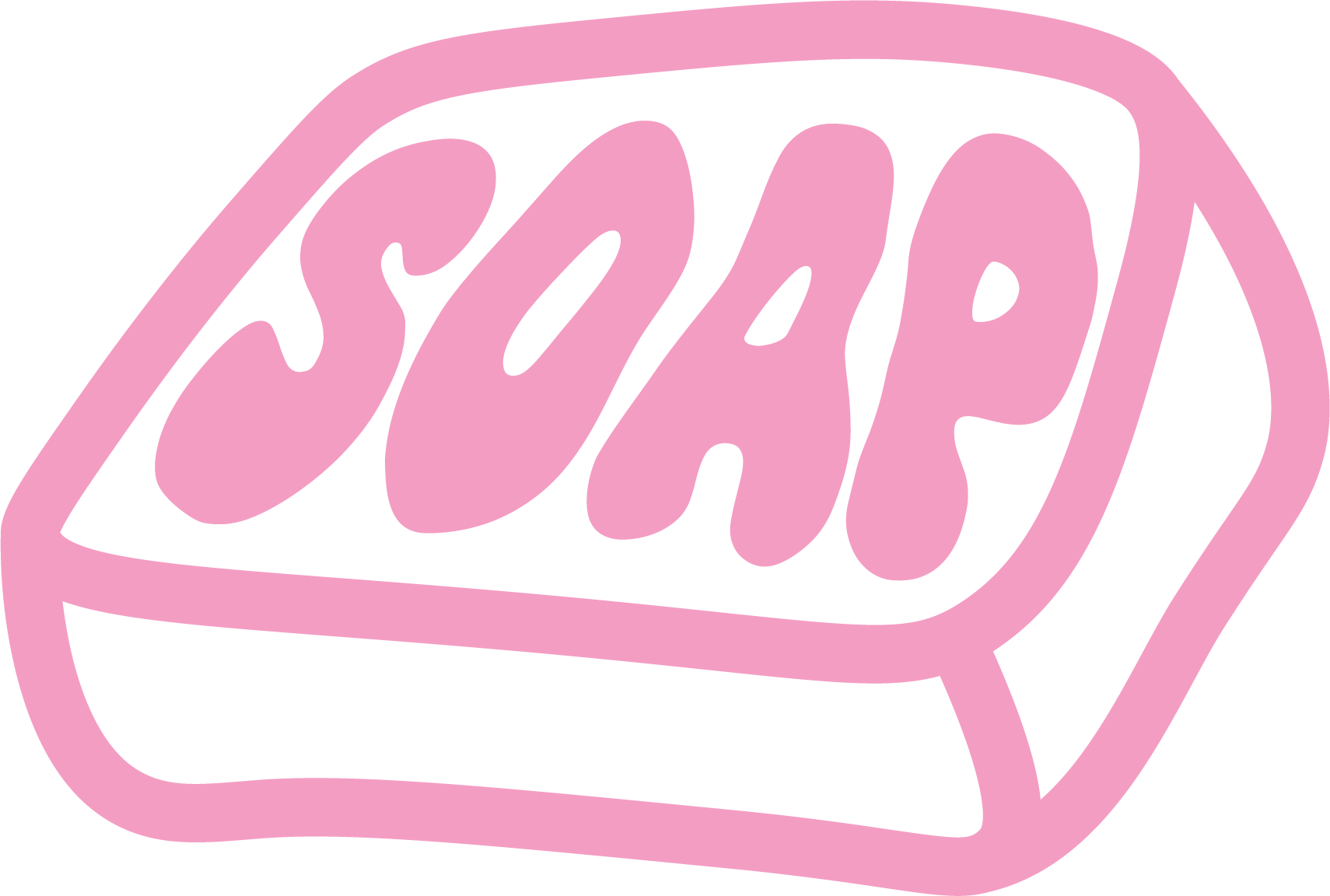
THE INTERNATIONAL TRADE MART PAINTING INDUSTRY MARKET: “ELEVATOR PAINTINGS”
Yiwu, April 2024
Reportage & photos by Yves Bartlett and
Da-Jiong Dong
Edited by Vanessa Torpey
What do the abstract black-and-white prints framed in your dentist’s waiting room and the garish oil paintings sold in Montmartre’s tourist shops have in common? In the vast body of globalization, the bustling city of Yiwu may hold the answer.
As a hub for Chinese manufacturers and international traders from across the globe, Yiwu boasts efficient logistics and a concentration of specialty markets unmatched elsewhere. Conveniently located near Shanghai in the heart of Zhejiang province, Yiwu features over 100,000 shops supplying both national and international markets with everyday consumer products. The majority of these specialty stalls are compacted into five gigantic buildings, the markets so vast that finding a particular product can quickly turn into a laborious trek under bleak neon lights.
Upon visiting this enormous complex, taking several detours through the endless stalls selling everything from cartoon-print leggings to innovative car gadgets, we finally made it to the centre of the labyrinth: The International Trade Mart Painting Industry Market.
![]()
Upon visiting this enormous complex, taking several detours through the endless stalls selling everything from cartoon-print leggings to innovative car gadgets, we finally made it to the centre of the labyrinth: The International Trade Mart Painting Industry Market.

Located in District 2 of the Yiwu International Trade City - one of the five main market hubs - this sector of specialty markets flaunts thousands of artworks scattered out on display for the businesspersons who pass by. There is no doubt that they will find something to their liking among the hundreds of art dealers present, with paintings hanging from floor to ceiling, stacked on top of one another like an oversaturated pictorial orgy.
Strolling through The International Trade Mart Painting Industry Market is almost as overwhelming as its title. I found it to mirror the overstimulating and often daunting experience of contemporary art fairs I’ve seen in the West — a more publicized example of the spread of a globalized artistic style. The seemingly infinite amount of visible works quickly induces a slightly nauseating aesthetic anesthesia as you’re consumed by excessive sensory input.
And yet the primary difference between the better-known art fairs in cities such as Paris, and the Yiwu market lies in the status of the artworks. In Yiwu, the artists are anonymous; they are paid to copy master paintings or produce original works with highly constrained creativity. The profits come solely from the volume of sales, and prices are kept as low as possible. Paintings are never bought individually but always in bulk. The manufacturers then create variations on a dominant theme that produces the most sales, such as oil paintings of Paris or verses from the Quran.

On an unusually quiet Sunday afternoon, we met Li Xiuqin, director of TE BIE TE OIL Painting. Upon our arrival, Li quickly emerged from boredom and eagerly began showing us her paintings while sharing her story. Under the sterile white lighting, Li presented her works one by one, pulling canvases from piles of paintings stacked haphazardly across the shop. “Most of the art depicts a repetition of animals, landscapes, and flowers” she explained. “We choose these themes because they sell best”.
We marvelled at the sheer amount of work around us as Li continued on. “I originally started learning painting, then I moved to Dafen”—a village in Guangdong province renowned for art reproduction. Li explained that this village gained fame after the documentary Van Gogh’s China was released, which featured Xiaoyong Zhao, a local artist known for his precise replicas of Van Gogh's works. Ironically, Zhao's paintings have gained significant value; one of his original pieces recently sold for 150,000 yuan (around €20,000). “The artists I manage now come from Fujian province, about 400 kilometers from Yiwu”. According to Li these artists can produce up to ten artworks a day, with prices starting at 30 yuan (€3.82) per piece.

The art displayed in Yiwu spans much of Western art history. However, rather than presenting a dominant artistic vision, the manufacturers aim to subtly integrate into the aesthetics of each market. As a result, biblical scenes coexist with Marvel superheroes, African masks, conceptual art, and Chinese calligraphy.
"My customers come mainly from the Middle East, Malaysia, Canada, France, the UK, the USA, Dubai, and Kazakhstan" explains Li with a smile, the global reach not lost on us. The artworks exude a soft, agreeable atmosphere, primarily intended for universal decoration. Even the texts on the graffiti-style paintings carry deliberately neutral messages, often featuring obscure English phrases typical of the marketplace.
Li Xiuqin and her many competitors at The International Trade Mart Painting Industry Market contribute to the subtle crafting of a globalized visual culture. Yet, much like the ubiquitous phenomenon of elevator music—an experience that quietly permeates our environment without much acknowledgment—the works from Yiwu may be the overlooked "elevator paintings" of the art world. The International Trade Mart Painting Industry Market offers not only a backstory but also a microculture that provides a deeper meaning to the abstract black-and-white prints framed in your dentist’s waiting room… A transnational tale of the “elevator painting” from Yiwu.

I think of you every step of the way
Today good mood
Together
Life is a journey, not the destination
But the scenery along the way
Be and the mood at the view
Excerpt from a street-art painting by 福雕家饰 ©Relife manufacturer
MANY THANKS TO THE
ISSUE 3 CONTRIBUTORS
MANY THANKS TO THE
ISSUE 2 CONTRIBUTORS
KOKO FIGURA
ANNIE
VANESSA TORPEY
YVES BARTLETT & DA-JIONG DONG
MANY THANKS TO THE
ISSUE 1 CONTRIBUTORS
born out of post-sunday blues sugar hiccups and getting the memo
2024
2024
